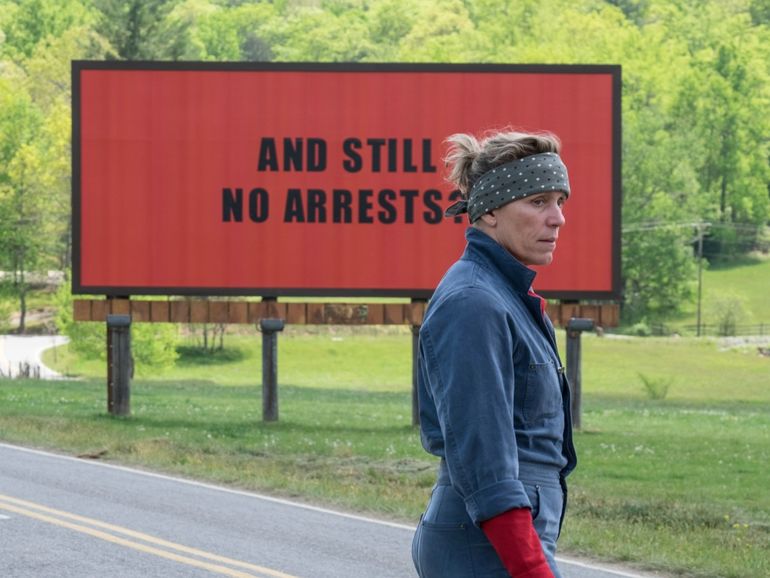Three Billboards Outside Ebbing, Missouri and Phantom Thread are this year’s frontrunners
The time has come to catch last-minute screenings and fill out your Oscar ballots before the Academy Awards air on Sunday, March 4.
This year’s competition for Best Picture is stacked with nine nominees. While the Oscars and awards season in general tend to be racked with controversy, this year’s scandal has less to do with the nominees and more to do with the treatment of women and minorities in the film industry, culminating in the #TimesUp and #MeToo movements.
The Academy can pat themselves on the back for acting on said controversy early this year. Firstly, by not inviting alleged sex offenders to attend the show and, secondly, by nominating one woman and one person of colour in the Best Director category. However, this doesn’t necessarily mean they will do due diligence when it comes to selecting this year’s Best Picture winner.
There is a certain type of film that gets awarded Best Picture every year, and while it isn’t always easy to define what type that is, it makes it simpler to narrow down which films won’t win. This is why the beloved Lady Bird and important Get Out are among those that can be ruled out of the competition this year. Despite their nominations and support from general audiences, they don’t quite fit the mold of a typical Best Picture.
Here’s a breakdown of the nominated films most likely to win.
Three Billboards Outside Ebbing, Missouri
Every year there seems to be at least one film in the Best Picture category that doesn’t resonate with general audiences—at least not right away. This year, that film is Three Billboards Outside Ebbing, Missouri. The film follows Mildred Hayes (played by Frances McDormand) who, frustrated with the stalled investigation into her daughter’s murder, paints three billboards in order to get the sheriff’s attention. While met with mixed reviews from critics, the film has swept the Best Picture category at every awards show so far, and it will likely earn the same recognition at the Oscars next week. But does it necessarily deserve to? Three Billboards certainly tells a haunting story about humanity and family, and it’s rich with powerful performances by veteran actors, which is right up the Academy’s alley, making it most likely to bring home the golden statue.
The Shape of Water
Guillermo del Toro is a director known for making emotionally charged and visually beautiful films, and he handles the strange premise of The Shape of Water with a special tenderness. The film is set during the Cold War in 1962 and sees a lonely, mute cleaning lady (played by Sally Hawkins) form a special bond with a top-secret science experiment—a creature that is part fish, part human. While it hasn’t received as much backing as Three Billboards, del Toro’s film is a favourite among film critics. He is poised to take home the award for Best Director, so that could mean his film will receive the same honour.
Phantom Thread
If there is a dark horse in this race, it’s Paul Thomas Anderson’s Phantom Thread. The simplistic, yet luring and imaginative tale of romance might just succeed in overtaking previously mentioned frontrunners for the win, but it could also get lost in the shuffle. Set in 1950s London, the film follows acclaimed fashion designer Reynolds Woodcock (played by Daniel Day-Lewis) as he meets and falls in love with Alma (played by Vicky Krieps), a young waitress. As Alma takes on the role of muse, assistant and somewhat of a mother figure, the imbalance in their relationship becomes more perturbed and, eventually, takes a toll on her. In Phantom Thread, Day-Lewis is at his most vulnerable, while newcomer Krieps holds her own against an acting legend. This is Anderson’s best work to date, and while it’s unclear if it will take home Best Picture (even though it absolutely should), you can count on it winning Best Costume Design.
Dunkirk
Christopher Nolan’s war drama is exactly the kind of film you’d expect to see in the Best Picture category. Dunkirk tells the story of the evacuation of Allied soldiers from Belgium, Britain, Canada and France, who were cut off and surrounded by the German army during World War II. The film is overwhelming in its quiet, subtle beauty and features many breathtaking moments with little dialogue. It should win based on cinematography alone, and it has picked up awards for editing and sound. While there is a slight chance the Academy will surprise us by awarding Dunkirk a win for its visual elements, it seems unlikely against livelier, more Oscar-friendly counterparts.
Call Me By Your Name
Sadly, the film that captured many hearts when it premiered at the 2017 Sundance Film Festival has lost momentum leading up to the Oscars, despite being the favourite to win for many months. It’s unfortunate, because the film is a major accomplishment for director Luca Guadagnino and lead actors Timothée Chalamet and Armie Hammer. Set in northern Italy during the 1980s, the film follows 17-year-old Elio (Chalamet) as he spends his summer falling in love with 20-something Oliver (Hammer). The romance unfolds with the crushing honesty that comes with first love, and Guadagnino makes sure to include everything from the sexuality to the awkwardness. Slated to become a cult-classic among teens and lovers of romance dramas, it doesn’t seem as though Call Me By Your Name will be bringing home any major awards this year, and that’s a shame.
